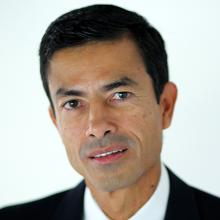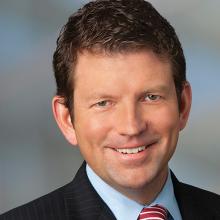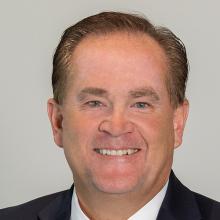CIOs face constant demands: If they’re not protective of their time, they can easily be pulled in too many directions.
We caught up with CIOs who recently won the 2019 Dallas CIO of the Year ORBIE Awards to find out some of their time management and productivity strategies. The awards were presented by the Dallas CIO Leadership Association, a professional community that annually recognizes CIOs for their excellence in technology leadership.
[ How do your people skills measure up? Read our related article, 8 powerful phrases of emotionally intelligent leaders. ]
Among the common themes we heard from these award-winning CIOs: It pays to be a morning person. Many of the winners cited their early-morning routines as being key to a productive day. Others look at productivity through the lens of how they're spending their time, as opposed to a specific routine. Read on to learn how these CIOs make the most out of their work days. Which of these strategies could help your IT career?
1. Eliminate unnecessary involvement
Nonprofit/Public Sector Dallas CIO of the Year

Chris Nchopa-Ayafor, Chief Information Officer, Tarrant County Information Technology: My approach to managing time is to avoid being a bottleneck by eliminating the need to “see or touch” everything before execution. Noticing a sag in my productivity, I created a CIO Technology Advisory Team (TAG) within my office chaired by the Deputy CIO. With this, once I have signed off on the general direction, things move more quickly from the round table (strategy) to the square table (execution) with the DCIO coordinating and reporting back. I only see exceptions.
Taking away unnecessary involvement in tactical and/or operational issues has allotted me 10 to 15 percent more time to focus on envisioning, strategy, and having productive executive touchpoints with the county’s top leadership and business stakeholders, a crucial aspect of my job that did not get sufficient attention.
2. Tackle critical issues in the morning
Corporate Dallas CIO of the Year

Roberto Arrocha, Chief Information Officer, DAVACO: Where and how CIOs are involved determines what gets done and signals priorities for others in the organization. It sends a clear message. A CIO's schedule then needs to be crafted to advance the company's agenda.
To have the most impact, it is essential to identify what matters most to achieve company goals. With clear priorities you know where you need to focus your time and attention. I am a morning person, which means my energy and alertness levels are at their peak in the morning. So I purposely schedule critical meetings and conversations during the morning.
Alone time, or time to think, without interruptions is critical but it is sometimes difficult to achieve; so I make it part of my morning routine. Before I arrive at the office, I think and reflect about how I may handle a particular situation or issue and note it for later reference.
3. Block out time for "deep work"
Large Enterprise Dallas CIO of the Year

Joan Kuehl, Executive Vice President and Chief Information Officer, Elevate: Because I'm immensely busy, I find that building structure and routine into my day really helps keep me focused. It can be really easy to get caught up in the fever of emails and meetings, and end the day without having accomplished anything concrete. Elevate has an enterprise-wide practice called “Deep Work.” From 9 to 11 a.m., we consciously try to avoid booking meetings and instead dedicate the time to strategic thinking and planning, educating ourselves on new technologies and innovation. Deep Work time really helps me focus some portion of my time every day on important strategic topics, and not letting all of my time be consumed with the urgent issues of the day.
On a more personal note, I'm an early riser and am freshest in the morning. Knowing this about myself has helped me "hack" the type of work I do at different times. When I need to work on something that requires a lot of thought or creativity, I work on it as soon as I get up at 4:45 a.m. I also love the surge of momentum I get knocking out a tough task before I head to work; it really starts the day off on a high point. I also have a 1+ hour daily commute each way, and use my morning commute to have phone calls with anyone who has an urgent need to talk with me but can’t find time with me in the office. I'm not always the best about separating work and personal time, but I do try to save my evening commute for myself. That hour helps me unwind before I get home.
4. Be a master of your calendar
Healthcare Dallas CIO of the Year

Matt Chambers, Chief Information Officer, Baylor Scott & White Health: Electronic task lists help keep me organized, especially when I’m constantly on the go.
Like most executives, I live and breathe by my calendar, so having a firm hold on my schedule is imperative. It’s key for me to understand which meetings and audiences require my presence versus which I can delegate. I also use color-coding to recognize certain types of meetings and mandatory obligations at a glance.
[ Need more help reclaiming your calendar? Read also: 5 time thieves and how to beat them. ]
5. Prioritize spending time on your customers
Super Global Dallas CIO of the Year

Hammad Azzam, Chief Information Officer of New Digital Business, BBVA: Customer-centricity needs to be sown into the fabric of the organization. It needs to be part of the company’s DNA. The calendar will pull you in all directions. It’s up to you to find enough time to get closer to your customers. When every one of my direct reports knows that my daily routines start by inspecting customer data (app reviews, NPS surveys, error logs, and transaction trends), they will follow and do the same with their direct reports, and so on all the way to the end of the hierarchy (or what I call the true doers.) At that point, focus on the customer becomes the most important part of the company, not of a small group of people specializing in data extraction.
The most productive thing you can do for the organization is what seems to be least productive. Spending hours a week pouring over endless, repetitive customer feedback might seem futile and time wasting, but will end up instilling a strong bond between employees and customers and will pay dividends better than any other dreamy, pie-in-the-sky intellectual discussion happening in off-sites and back rooms without any true reference to the customer state of mind.
6. Use your inbox wisely and sync files
Global Dallas CIO of the Year

Barry Shurkey, Chief Information Officer, NTT DATA Services: I am a morning person. I do a morning run on the treadmill and I use my Apple Watch for activity, heart monitor and for sleep. Working out in the morning allows me to think through my day, and lets me "sleep" through my workout. When I get to work, I grab my coffee and meditate on some readings for about 15 minutes to get my heart and soul in the right place.
Nothing leaves the inbox until I’m done with it, which means it stays in there if I am expecting a follow-up email. To make it easy to work anytime, anywhere, I use Office 365 filing and OneDrive to keep all my documents in sync across my devices.
Even though this system keeps me organized, it cannot be substituted for a phone call, utilizing video, or just a simple walk down the hall to have that one-on-one time with people. Moving forward, I look to spend more time on Yammer with my employees to keep them updated real-time and it’s easy to keep everyone moving in the right direction.
7. Be disciplined about prioritizing and delegating
Enterprise Dallas CIO of the Year

Andrew Brock, Executive Vice President and Chief Information Officer, Associa: The key to managing the constant demands is to be disciplined about the areas I choose to devote personal attention to. I’ve identified five key areas that help me maximize my productivity and keep me focused on the ultimate goal. I call them the “Big 5” and here’s how I’ve branded them internally:
- Stabilize the platform (manage uptime/risk)
- Unlock the model (save money)
- Disrupt the industry (make money)
- Transform our culture (focus on people)
- Continuously improve (focus on education)
Every year, I work with our CEO, my leadership team, and the broader company executive team to prioritize the areas within the Big 5 that we plan to focus on and accomplish. Everything operates within the framework of the Big 5. Projects and programs that align to these five areas are assigned to my leadership team, and I personally plan my time allocations across these areas in advance.
My leadership team and I meet each week to discuss our ongoing projects and related progress, and depending on those conversations, I can choose to lean in or lean out based on foreseeable risks or roadblocks. The framework is loose enough to allow for flexibility, which is key to it being effective. It then requires personal discipline to remain focused on the Big 5, and trust in my leadership team to lead and ask for help or space when they need it. It all comes down to self-discipline, a trusted team, and hard work.
[ Read our related article: Stand-up meetings: 5 reasons to kiss traditional meetings goodbye. ]







